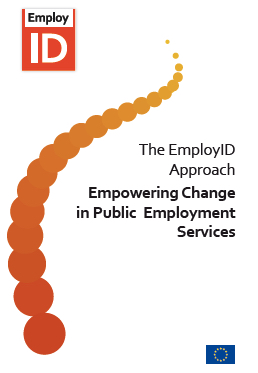 Readers familiar with European Research projects will know how they work. The projects negotiate with the European Commission a DOW - Description of Work - which details the work to be undertaken in each year of the project. It is divided into discrete work packages. Every year the work package provides a (usually over lengthy) report on research and development undertaken which is then presented to a team of expert reviewers who can 'pass', recommend changes or 'fail' the report. Although obviously large scale multi national research projects need structures and plans. But all too often the work package structure separates research and development activities which should not be separated and the DOW become a restrictive 'bible', rather than a guide for action. And despite the large amount of work which goes into preparing the work package reports, they are seldom widely read (if indeed read at all), except by the reviewers.
Readers familiar with European Research projects will know how they work. The projects negotiate with the European Commission a DOW - Description of Work - which details the work to be undertaken in each year of the project. It is divided into discrete work packages. Every year the work package provides a (usually over lengthy) report on research and development undertaken which is then presented to a team of expert reviewers who can 'pass', recommend changes or 'fail' the report. Although obviously large scale multi national research projects need structures and plans. But all too often the work package structure separates research and development activities which should not be separated and the DOW become a restrictive 'bible', rather than a guide for action. And despite the large amount of work which goes into preparing the work package reports, they are seldom widely read (if indeed read at all), except by the reviewers.
In the EmployID project which is working with identity transformation in European Public Employment Services (PES), we are doing things differently. The work is structured though cross work package teams, who follow an adapted SCRUM structure. The teams are reviewed at face to face meetings and recomposed if necessary. And this year, instead of producing a series of Work package reports, the project partners have jointly contributed to a book - Empowering Change in Public Employment Services: The EmployID Approach which has just been published and can be downloaded for free.
The introduction to the 244 page PDF book explains the background to the work:
European Public Employment Services (PES) and their employees are facing fundamental challenges to the delivery of efficient and effective services and the need to change their strategies to combat high unemployment, demographic change in increasingly uncertain and dynamic labour markets. This does not only require developing new professional skills related to new tasks, but poses for more profound developmental challenges for staff members.
Three of these changes relate to understanding the changing world of work; a 'turn' towards coaching; and the increased importance of relations with employers. The staff need to learn new ways of working, with a major challenge being to enhance the power of collaborative (peer) learning in order to support staff in accomplishing their goals.
All these changes are linked to transforming professional identity, which requires learning on a deeper level that is often neglected by continuing professional development strategies. EmployID makes its contribution here; that PES practitioners’ learning related to professional identity transformation needs to be facilitated through social learning approaches and the nurturing of social learning networks, which include the following:
-
Reflection as a way of turning one’s own and others’ experiences into general insights on multiple levels, both from an individual and a collective perspective
-
Peer coaching as a way of helping learners in changing their behavior through a structured process
-
Social learning programmes as a way of engaging learners with new topics, other perspectives, and conversations around it.








